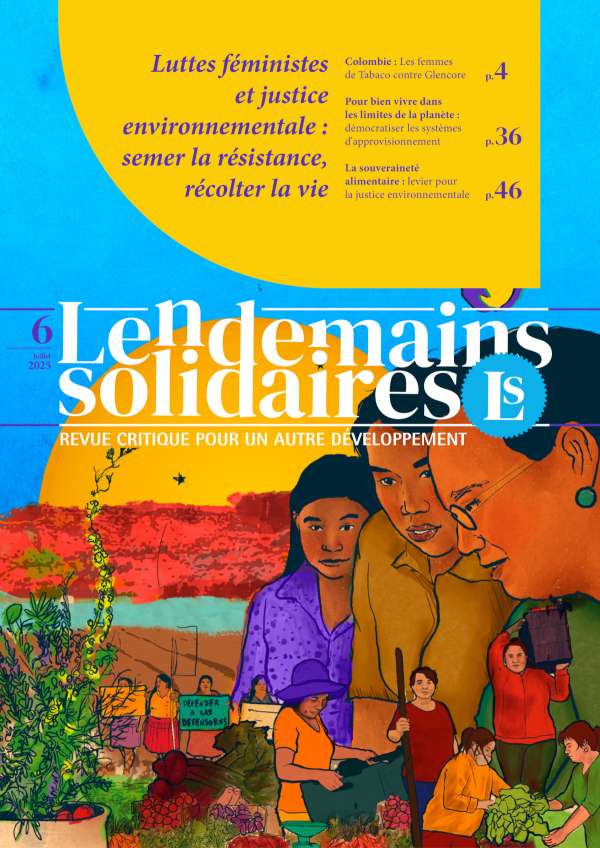CETIM focuses on the promotion and implementation of economic, social and cultural rights (ESCR). They are the backbone of human rights and a powerful tool for achieving a self determinated development model by peoples. This is particularly true for the most vulnerable and marginalised populations. Properly implemented, these rights contribute to the respect for human dignity and to the achievement of social justice. On the contrary, the violation of any of them can jeopardise the enjoyment of all the others.
The universality, indivisibility and interdependence of human rights are enshrined in international instruments. Yet, we are still a long way from their effective implementation for all, and ESCR are among the worst off. Indeed, the basic needs (food, water, health, housing, education) of a third of humanity are still not being met. In some respects, the situation has even deteriorated, including in the countries of the North. This is due to the fact that the policies adopted at economic level accentuate ESCR violations and cause
– increased poverty
– growing inequality across the world
– multiple crises (political, economic, financial, environmental, social and cultural).
By definition, human rights are designed to protect citizens from the arbitrary actions of the most powerful and their governments
The international health crisis linked to COVID-19 has only exacerbated this situation. It has also shown the importance of implementing public policies based on ESCR. In particular, the right to health, the right to housing, the right to food, the right to water, the right to work, the right to education and the right to social security.
But for human rights to be better respected, they must be known, they must be demanded and they must be enforced. However, victims are often unaware of their rights and of the mechanisms available to them for appealing (at national, regional or international level). States, which have an obligation to inform and educate their citizens about human rights, often fail in their duties.
The role played by civil society organisations and social movements in human rights education and training is therefore crucial
– to denounce human rights violations
– to contribute to the implementation of existing standards.
HUMAN RIGHTS COUNCIL 23rd session 27 May-14 June 2013 [Excerpt from the declaration] The dispersal policy implemented by these two States is a measure designed to keep Basque prisoners as far away as possible from their families and loved ones. In Spain, the average distance between a Basque prisoner and his family is 632 km. […]
Continue reading
HUMAN RIGHTS COUNCIL 22nd Session 25 February – 22 March 2013 Israel’s decision to boycott the UPR is a further illustration of its disregard for its international human rights obligations and its lack of commitment to international cooperation in the field of human rights, which is a duty of UN Member States. Israel’s refusal to […]
Continue reading
HUMAN RIGHTS COUNCIL 22nd session 25 February – 22 March 2013 [Excerpt from the statement] There are many mamos (traditional authorities) and other members of our communities who have been disappeared, killed or displaced for maintaining a position of neutrality towards all the legal and illegal armed groups that dispute our sacred territory. Blood has […]
Continue reading
HUMAN RIGHTS COUNCIL 22nd session 25 February – 22 March 2013 [ Excerpt from the statement] According to a UNDP estimate mentioned by the Independent Expert, for every dollar received in international cooperation, 60% leaves the country in the form of illicit flows. For 11 least developed countries, the total amount of losses linked to […]
Continue reading
HUMAN RIGHTS COUNCIL 22nd session 25 February – 22 March 2013 A. INTRODUCTION Despite the Peace Process undertaken by the Basque pro-independence movement in 2011, the violation of Human Rights against the citizens of the Basque Country continue. Those are consequence of the emergency situation adopted by the French and Spanish Governments to attack the […]
Continue reading
« Previous
1
…
21
22
23
24
25
…
45
Next »


